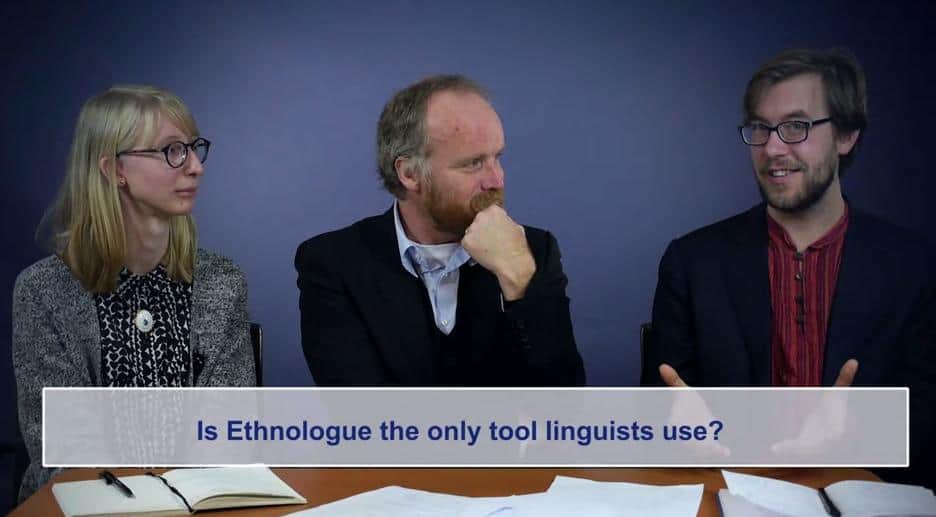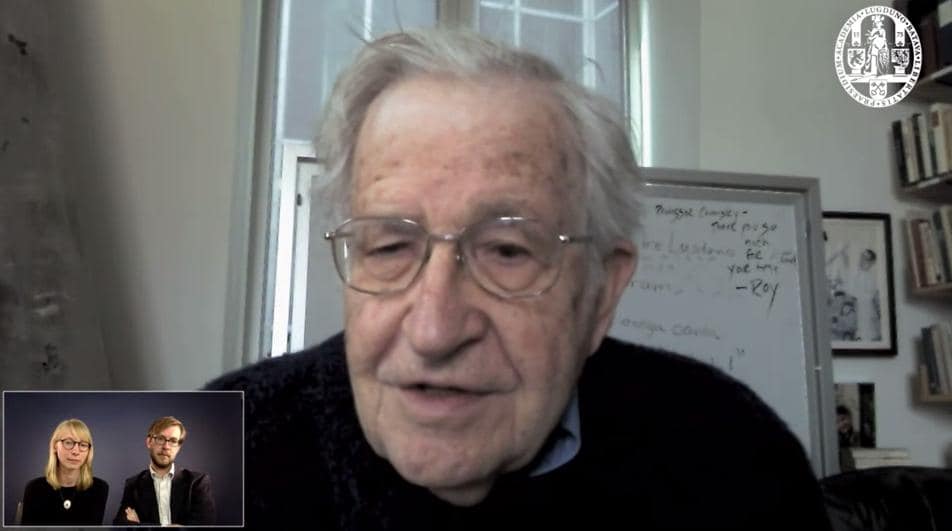Course Review: Miracles of Human Language from Leiden University on Coursera
An Introduction into the study of languages and the field of linguistics with special interview sessions from Noam Chomsky, Adele Goldberg, Claartje Levelt and more.
Review by Deepak Jois. Took the course? Write your own review here. Read all reviews.
INTRODUCTION & MOTIVATION
I did a bachelor’s degree in computer science, and worked in the technology industry (in Singapore, Seattle and finally Berlin) for 10 years before deciding that I needed to get out of the tech bubble for while. So about a year ago, I took an extended break and moved back to my home country India. I was pretty sure I wanted to pursue something significantly different from the technology related stuff I had been doing so far; to diversify my knowledge and broaden my worldview. The most appealing thing I could think of, was to do something related to human language. I have been interested in languages for a long time. I grew up in a country which is home to hundreds of languages. I am fluent in three languages — Kannada, which is my mother tongue; Hindi, which was the dominant language in the part of India where I grew up; and English, which was the medium of instruction at school. I have also been a fan of Urdu[1] poetry since an early age, but never got a chance to learn the script.
Intro Video for Miracles of Human Language: An Introduction to Linguistics
I decided to start by enrolling in an Urdu language diploma course at a university. The course not only helped me learn the Urdu script, but also introduced me to various other aspects of the Urdu language. Learning about Urdu’s history and its troubled relationship with its twin language Hindi, made me realize how language is often shaped not only by culture and social systems, but also by politics, ideology and questions of identity and belonging. This prompted me to read more about how languages evolve and interact, and how academics often use these phenomena as a means to understand wider truths about different cultures and communities. In other words, I came across the discipline of linguistics, and it seemed like something which could help me take my interest in language to a new level. This is when I found out about the Linguistics MOOC (titled Miracles of Human Language: An Introduction to Linguistics) being offered by Leiden University through Coursera. By taking this course, I hoped to acquire a basic understanding of what linguistics is about, and figure out if it was the kind of thing I would enjoy pursuing further.
LEIDEN UNIVERSITY MOOC’S
Leiden University has a dedicated Online Learning Lab which runs several MOOCs. My previous experience with the course Configuring the World was very good, so I was optimistic about this course being high quality also. There is a high level of engagement by the teaching staff, apart from putting out the course videos. There are groups on Facebook, weekly Google Hangouts with professors, and university staff are prompt in responding on the online discussion forums.
There are groups on Facebook, weekly Google Hangouts with professors, and university staff are prompt in responding on the online discussion forums.
PREREQUISITES
The course did not have any prerequisites, and could be taken by anyone who has an interest in understanding how human language works, and its different aspects like origin, forms, cultural context etc. There were 1-2 hours of lectures every week, along with a quiz. At the end of the course, there was a final exam. For those aiming for a Certificate of Accomplishment with Distinction, there were a couple of assignments in which we were encouraged to record a video (although written and/or audio submissions were allowed as well).
The course could be taken by anyone who has an interest in understanding how human language works, and its different aspects like origin, forms, cultural context etc
COURSE REVIEW
Prof. Oostendorp came across as a highly passionate, easy-going and humorous person
Overall, the lectures were easy and fun. The instructor, Prof. Oostendorp came across as a highly passionate, easy-going and humorous person. He communicated the concepts clearly and effectively. He was also very responsive in the forums and Facebook group. There were a couple of unique aspects of the lectures, which I have not seen in any of the MOOC’s I have taken so far.
The first unique aspect was the question-answer style interaction between Prof. Oostendorp, and the two teaching assistants Martin and Inge. There were one or two videos of such interactions every week, and they served to elaborate and clarify the things that were covered in the lectures. These sessions, which appeared scripted, were useful because I had similar questions after listening to the lectures. It was a lot more valuable to have those questions answered in a face-to-face interaction, than in the forums.
The first unique aspect was aspect was the question-answer style interaction between Prof. Oostendorp, and the two teaching assistants Martin and Inge.
The other unique aspect of the course was the use of weekly informant videos. The ‘informants’ were speakers of different languages, who used their native language to highlight concepts that were covered in the lectures that week. It was particularly interesting to know more about Tarifit Berber and Gungbe, languages I had heard about, but never really knew anybody who spoke in them.
Every week, there was an interview with a prominent linguist regarding their area of specialization. The highlight was a half-hour long interview with Noam Chomsky regarding his life and work as a linguist. Other interesting topics covered in these interviews were sign-language linguistics and language acquisition in children.
The quizzes and the final exam were easy too. The required readings were mostly interesting, and there were quiz questions on it, which was a motivation to not be lazy and skip them. The two peer–reviewed assignments were a bit more challenging, especially if one were to record a video and annotate it. I chose the easy way out, and decided to submit a written assignment for the first one, and an audio recording for the second. Every week had a set of 5-10 book recommendations as optional readings. I did not get any of the books, but I am sure the list would come handy in the future.
CONCLUSION
It was a good introduction to various aspects of linguistics.
Taking the course was a highly enjoyable experience. It was a good introduction to various aspects of linguistics. Being an introductory course, it is understandable that the professor did not delve too deeply into any one topic. However, a motivated individual could use the readings and forum discussions to explore specific topics of their interest further.
It has definitely motivated me enough to consider studying linguistics seriously. I have become particularly interested in the sub discipline of sociolinguistics and see myself delving deeper into that in the future.
For now, I have decided to learn Pali (a dead but historically significant Indian language) this year, and also registered for two new linguistics courses starting in June at the Virtual Linguistics Campus. I hope to enroll into a master’s degree in linguistics some time next year. Being able to expand my knowledge enough to pursue serious linguistic research in the future would be a great outcome of taking this course. I am keeping my fingers crossed.
[1] Urdu is almost the same language as Hindi, except that it is written in a different script, and has more Persian-origin words, whereas Hindi uses more Sanskrit-origin words. Hindi and Urdu came to be known as separate languages for purely political reasons a few decades ago, and have since grown in different directions.
Review by Deepak Jois. Deepak was a professional computer programmer for over 10 years. Nowadays, he lives in a small town in India and spends time doing a lot of MOOC’s.
Class Central is looking for reviewers and regular contributors. If you’ve ever finished a MOOC and want to write a critique to help future students considering taking that course, we want to hear from you. Drop us a mail.







